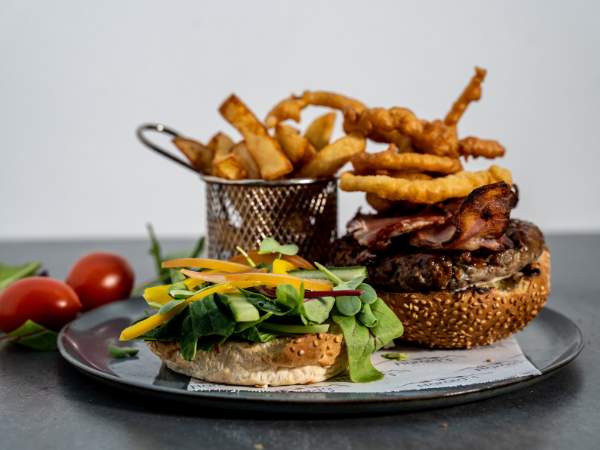News
This African fruit makes sour food taste sweet
Wednesday, July 29th, 2015If, like most of the world, you’re addicted to sugar, listen up. There’s a west-African fruit that transforms sour things into sweet ones. Synsepalum dulcificum – or miracle fruit, as it’s more helpfully called – contains something called miraculin. This molecule binds to the tongue’s sweet taste receptors.
The Atlantic explains: “The acid present in sour foods sparks a chemical reaction that causes miraculin to temporarily distort the shape of these taste receptors, enhancing them and making them so sensitive that the powerful sweet signals they are sending to your brain completely drown out the sour ones.”
The effect lasts about 30 minutes, before saliva washes away the protein.
Eat Out’s Abigail Donnelly and Katharine Jacobs tried it at the Street Food Festival dinner on Sunday.
“It was totally trippy,” says Eat Out online ed, Katharine. “In lieu of dessert, we were served a single dried berry and a bowl of lemons. After chewing on the berry, the sourness of the lemons transformed into a sweet, sherbetty flavour – like a subtly sour sweet. We fought over the last of the lemon quarters as if they were sweeties. We also tried the Black Label beer we’d been swigging. If I’d been blindfolded, I would’ve sworn we were drinking Coke!”

Synsepalum dulcificum – also known as miracle fruit.
“I just hope my sense of taste comes back in the morning,” said Abigail. “It ruins beer and wine. And the chefs will be horrified!” (In reference to her role as a judge for the Eat Out Mercedes-Benz Restaurant Awards.)
In West Africa, the miracle berry is used to sweeten palm wine and soured cornbread – and there’ve been various studies on its applications for reducing the pervasive metallic taste experienced by chemotherapy patients and providing a safe sweetener for diabetics.
But for many folks, the most appealing factor is probably the chance to have the sugar experience without the sugar. For now, price is a factor, and in the USA, FDA regulations are blocking it from becoming widely used as an artificial sweetener.
But is this the future of dieting and the savior of the world?
Katharine is skeptical: “I think that human beings – at least human beings with sensitive tummies – aren’t actually supposed to eat large amounts of superlatively sour, acidic things. The sourness is a clue. Take if from someone who recently binged on lemons.”
All the same, it’s a pretty great party trick!













Hi,
Any one know where I can buy this?
Nico
I Nede Them!!!
We have a plantation of these
Hi Dadulamanzi
How do i get hold of you to arrange purchase of these?
We can supply you with the plants
I would also like to get my hands on some. Having the plant would be even better
Hi Dabulamanzi,
Do you still have the miracle berry plants available?
regards
I am looking to buy some miracle fruit plants or berries? I’m in Pretoria South Africa
Can you help me out please?
Dabulamanzi or anyone.
Where can I buy these berry’s or Pill form of this berry in south Africa?
I’m in CPT. please msg me asap..